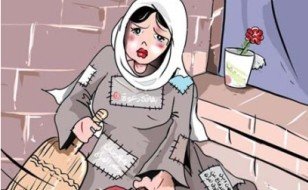The 2008 Human Development Report on Turkey has been launched by the United Nations Development Programme (UNDP) under the title “Youth in Turkey.”
According to the report, persisting conservative attitudes in Turkey mean that girls and young women still do not have the same educational rights as their male peers.
Women prevented from equal participation
Under the title “What is worse than nonexistence? ‘Being a nonexistent young woman,’” the report says that “the situation of adolescents in Turkey is complicated by gender disparities that still reflect and emphasise frequently the traditional preference of men and boys over women and girls.”
The report goes on to say, “socially conservative attitudes to gender, partly associated with some traditional characteristics, lead in a still unduly large proportion of instances to the exclusion of women from equal participation in public and private life.”
This, so the report, has serious consequences for Turkey’s further development.
Still a gender gap in education
There does not seem to be a gender gap in pre-school education, which is perhaps because it is often the prerogative of the better-off. Roughly 16 percent of girls and boys attended pre-school educational institutions in 2007. However, in primary school there is an 4 percent gap between girls and boys, and this widens to 8 percent in secondary schools. Although this is an improvement from 2001, when the gap was 8 and 17 percent in primary and secondary schools respectively, the gap is still considerable.
Lack of education affects health and next generation
The report also points out that the early disadvantage that girls face is reflected in later life.
Women who do not attend high school have twice as many children as their peers with more education. 15 percent of women who don’t go to or complete primary school give birth between the ages of 15 and 19, compared to three percent of their peers.
As well as the health hazards which early pregnancy may entail for adolescent girls, young motherhood also affects the next generation.
Lack of education often perpetuates poverty with uncontrolled reproduction and inadequate nutrition and health care for the children.
There are indications that child marriages often result in “poorer indicators for routine immunisation, stunted growth, disability, chronic illness, and the recursive problem of lower educational performance and attainment in their children.” (NZ/GG/AG)
















